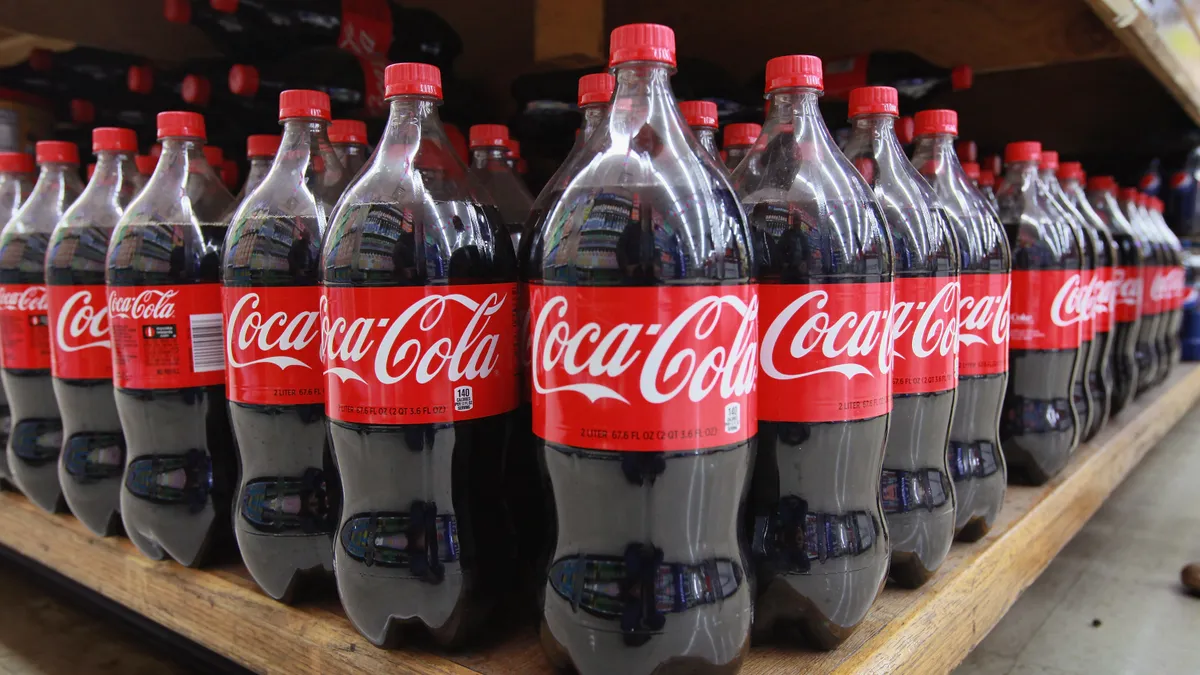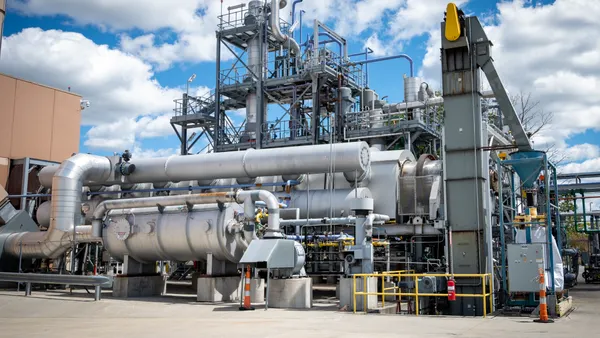Dive Brief:
- The Coca-Cola Co. is the first announced customer for Republic Services’ forthcoming polymer centers, a project the waste company describes as “the first time a single U.S. company will manage the plastics stream from curbside collection to delivery of high-quality recycled content for consumer packaging.”
- Republic Services will supply Coca-Cola with recycled PET. The companies declined to disclose specific deal terms, but Pete Keller, Republic’s vice president of recycling and sustainability, said Coca-Cola “will consume a significant portion of our output.” The first center in Las Vegas is on track to begin operations by the end of this year, with material likely being supplied in the first quarter of next year.
- Coca-Cola is aiming to use at least 50% recycled material in its packaging by 2030 and “collect and recycle a bottle or can for each one we sell” by that same year. In 2022, the company used 15% rPET in its bottles and collected 61% of the equivalent bottles and cans it put into circulation.
Dive Insight:
A mix of ESG pressure and legislative action have driven more packaging manufacturers and CPGs to aim to be less reliant on virgin plastics and incorporate recycled content into packaging. However, some companies have pointed to unreliable supply or higher costs.
Republic Services is building out a network of facilities targeting that opportunity. Keller said that while multiple states have now passed legislation related to minimum recycled content requirements in packaging, which will drive mandated demand, “our decision to invest in volume or centers to make these materials available in the marketplace was largely based on [brands] saying, ‘we want the material and will value it.’” Other major CPGs including ABInBev, Danone and Nestlé all have goals to achieve 50% recycled content in bottles or packaging.
Activist investment firm Engine No. 1 pushed Coca-Cola to partner with a waste management company — specifically Republic, which Engine No. 1 has a stake in — to support bottle-to-bottle circularity, Semafor reported in October. The proposal was that Coca-Cola either invest in Republic to help fund collection logistics, or secure a long-term contract to buy bottles made of recycled plastic.
Since announcing the polymer centers early last year, Republic has had conversations with converters and brands alike, and some “specialty” applications like in cosmetics or automotive also are a possibility. “We're approaching the market in a very intentional way,” Keller said. “It would just be easier for us to have three or four pretty significant partners rather than 1,000. But we're still working through that.”
A lot of this recycled material has historically been repurposed as items like textiles, carpeting or construction materials that have limited recyclability at end of life, Keller said. “It’s exciting to be able to produce the material that the consumer packaging marketplace is interested in consuming,” he said.
In addition to PET, the centers are being designed to process HDPE and PP. Beyond Las Vegas, Republic has announced the next polymer center will be in an unspecified Midwest city. Republic has already ordered equipment for that site and it’s expected to be operational by the end of 2024. Additional centers will follow in 2025 and 2026 at sites in the Northeast and in the Gulf area, for which the company is currently working on steps like permitting and engineering feasibility plans.
The ramp-up at the Las Vegas center could inform future decisions around center design, maintenance, staffing and operational hours, Keller said.












